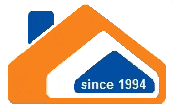Texas Home Insurance
Your home may be your largest investment. The best way to protect it is through a Texas Home Insurance policy.
Coverage Selections Based on Your Individual Needs
 Talk to our licensed insurance agent for advice on coverage selections based on your individual needs. We will help you put together a package of different coverages to provide you with the proper amount of insurance so that you will not suffer a penalty at the time of loss. If you take the time now to understand how home owners insurance and how car insurance works, you will be prepared to fend off financial misfortune.
Talk to our licensed insurance agent for advice on coverage selections based on your individual needs. We will help you put together a package of different coverages to provide you with the proper amount of insurance so that you will not suffer a penalty at the time of loss. If you take the time now to understand how home owners insurance and how car insurance works, you will be prepared to fend off financial misfortune.
Texas homeowners insurance pays to replace or repair your house and personal property if they’re destroyed or damaged by an occurence or event or covered by your policy. These occurrences or events are called “covered losses.”
Note: An insurance policy is a contract that is between you and your insurance company. Make sure to read it carefully to understand exactly what your coverages are and the dollar limit of your coverage.
Protect Your Financial Invesment
Texas home insurance is one means to protect the financial investment in your home. Your Texas homeowners insurance helps pay for damages to your home and its contents, or it can protect you from financial liability if someone is injured on your property.
What’s Covered in a Texas Home Insurance Policy
Most Texas home insurance policies include the following coverages:
- Dwelling pays if your house is destroyed or damaged by a covered loss.
- Personal property pays if the items in your house (like clothing, furniture, and appliances) are damaged, destroyed or stolen.
- Other structures pays to rebuild or repair structures not attached to your house, such as storage sheds, detached garages, and fences.
- Loss of use pays your additional living expenses (food, housing, and other essential expenses) if you must temporarily move because of damage to your house from a loss that is covered on your policy. Your home insurance policy will pay either a percentage of the amount of your dwelling coverage (usually 10%-20%) or for a specific period after a loss.
- Personal liability pays to defend you in court against lawsuits. It provides coverage if you are found legally liable for someone’s property damage or injury.
- Medical payments will pay the medical bills of people injured on your property. It could also pay for some injuries that may happen away from your premises, such as your dog biting someone at the park. A basic homeowners policy pays $500 in medical bills, but you may purchase up to $5,000 in medical payments coverage, or more, depending on your insurance carrier.
There are two common policies that we recommend for protecting your home which provide broad coverage.
Broad Form Coverage
1. HOB – The HOB (HomeOwner Broadform) policy is one of the most common home insurance policies. It provides excellent coverage for your home and provides good coverage for your personal property.
With the HOB, your home is covered on an “open perils,” also referred to as “all-risk,” and your contents (personal property) are covered on a “named perils” basis. An open perils policy does not list the perils your home insurance covers you for; rather, it lists the perils your home insurance does NOT cover. If the damage to your home is not caused by something on the exclusion list, then you have coverage. A named perils policy specifically lists the perils that your personal property is covered for. If something happens to your belongings that is not on the list of covered perils, you do not have coverage.
2. HO3 – The HO3(HomeOwner 3) policy is very similar to the HOB insurance policy. It is open perils coverage on the home and named perils coverage on your personal property. The only difference between these two policies may be the amount of water coverage automatically included in the policy. The HOB typically comes with more water protection. All water protection that comes standard on the HOB can usually be endorsed onto the HO3.
A homeowners (HO3) policy provides comprehensive property and liability coverage for homes that are owner-occupied. It provides insurance related to most risks, such as fire, lightning and theft.
Limited Form Homeowners Insurance Policies
Other, limited policies are also available, such as an HOA. We do not recommend this type of policy, but you should be aware of the coverage and that it’s often sold to homeowners.
The policy contract discloses all coverage limitations, exclusions and conditions that apply.

